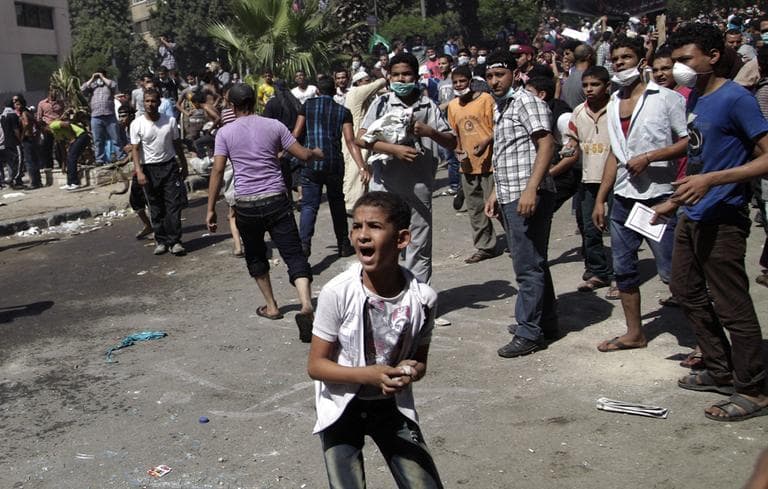Advertisement
Foreign Policy And The Muslim World
ResumeObama foreign policy, the Romney dissent, and the fury in the Muslim World.

American foreign policy has lived largely on the outskirts of the 2012 presidential campaign. Yes, the Obama camp has spoken early and often of the killing of Osama bin Laden. Yes, Mitt Romney has taken his shots at Russia and China.
But the world has been largely off stage – until last week, when suddenly American embassies in the Arab world were burning. A US ambassador was dead. Mitt Romney attacked while the crisis still raged. President Obama had a difficult panorama of outrage to explain.
This hour, On Point: Obama, Romney, and the fight over US foreign policy in the Arab world.
-Tom Ashbrook
Guests
Susan Glasser, editor in chief of Foreign Policy magazine.
Robert Malley, program director for Middle East and North Africa at the International Crisis Group.
Reuel Marc Gerecht, serves as senior fellow at the Foundation for Defense of Democracies, focusing primarily on the Middle East, Islamic militancy, counterterrorism, and intelligence. Earlier, he served as a specialist at the CIA's Directorate of Operations.
From Tom's Reading List
Daily Beast "The scene in Tahrir Square was a familiar one Thursday night. Surging crowds of demonstrators faced off with riot police along a heavily guarded street. Tear gas canisters flew through the air, and a sense of defiance filled the square. But for Mahitab Elgilamy—one of Cairo’s seasoned democracy activists who took part in the protest movement against former president Hosni Mubarak, the one against the military council that took his place, and many others besides—the situation didn’t feel right. “All these people are gathered like cattle,” she said."
New York Times "The violently anti-American rallies that have roiled the Islamic world over a video denigrating the Prophet Muhammad expanded on Friday to more than a dozen countries, with demonstrators breaching the United States Embassy in Tunisia for the first time and protesters in Sudan’s capital broadening the targets to include Germany and Britain."
Foreign Policy "For ordinary Americans, the understandable reaction is one of anger, even betrayal. We liberated them — this time for humanitarian reasons, and even though our vital interests were not at stake. And now they besiege our embassy and kill our ambassador. When I woke up today, a friend asked me half-jokingly, "What's wrong with Muslims?" That is, whether we like it or not, the question that many — including American liberals who have, time and time again, given "Muslims" the benefit of the doubt — will be asking."
This program aired on September 17, 2012.